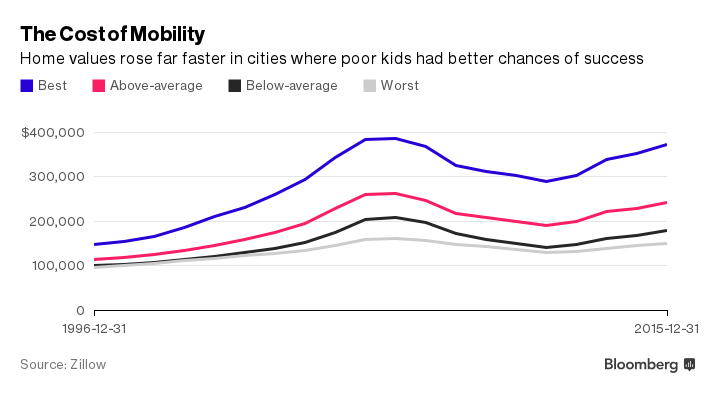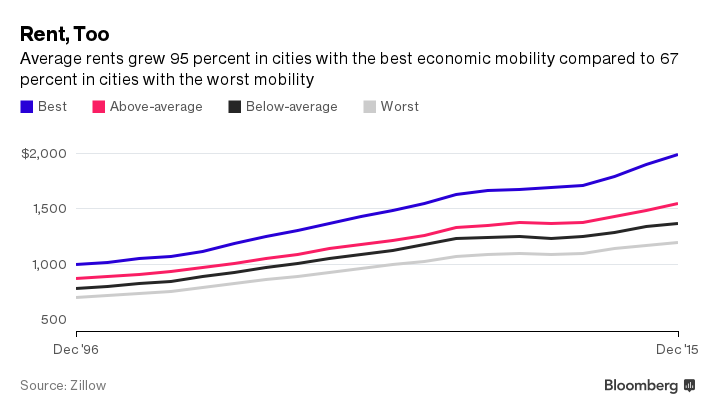It's an article of faith among affordable-housing advocates that low-income residents are better served when they live in neighborhoods that are economically diverse, and that new housing policy should seek to integrate the rich and the poor.
Better hurry up.
Over the last two decades, housing costs have increased faster in cities that offer better opportunity for economic mobility, according to research published today by Zillow. That probably means there’s less housing to go around for poor families in the areas where they’re best primed for success. And when poor families can find housing in those places, they’re likely to spend a greater share of their income on it.
The chart uses the Zillow Home Value Index and data compiled by Harvard economists Raj Chetty and Nathaniel Hendren, whose Equality of Opportunity Project measured the causal effect that growing up in a given city has on the future income of poor children. From 1996 to 2015, the average home price increased by 147 percent in cities that ranked in the top 25 percent in economic mobility, but by just 56 percent in those that offered poor children the worst chance of moving up.

Rents also increased more quickly in cities that ranked high for mobility. (Note that unlike home values, rents didn't see a post-crisis dip.)
None of this should come as a surprise to observers of urban real estate markets, many of which received an influx of affluent knowledge workers in the last 15 years. The Zillow report suggests that some of the best places for economic mobility are coastal cities like San Francisco and Boston that have also been some of the hottest housing markets. It probably hasn't helped that builders of both for-sale and rental housing have largely focused on the high end of their markets in the years since the housing bust.

Poor workers, the report says, might find a mix of affordability and mobility in the upper Midwest, though moving across the country to seek economic opportunity is harder for a worker who makes less money. They recruit software engineers, not waiters.








